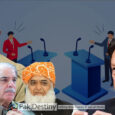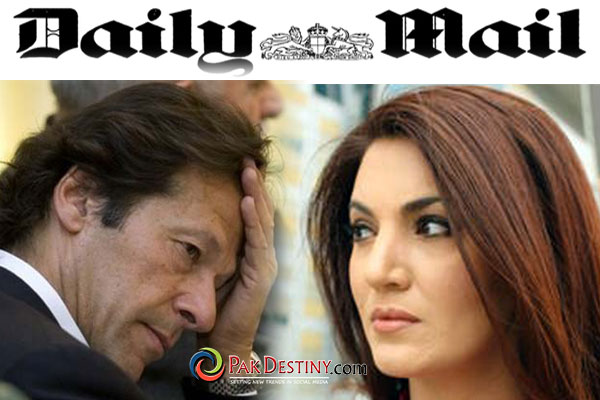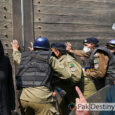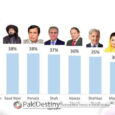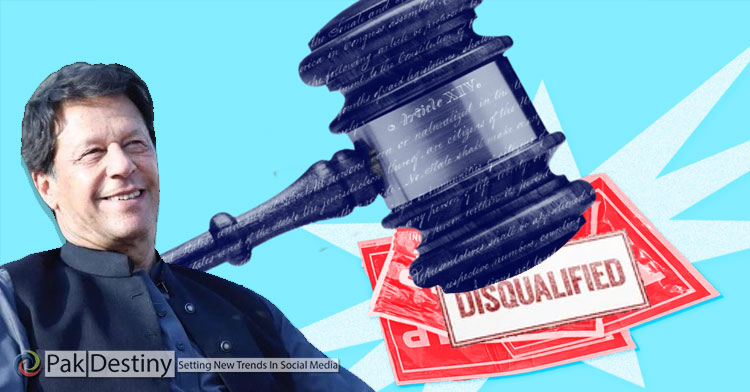
By Irum Saleem
“On the basis of my 32 years of legal expertise in the election laws and representing high profile cases of leading parliamentarians before the Superior Courts, Election Tribunals and Election Commission,” says Mubeen Uddin Qazi
Advocate Supreme Court in reaction to PTI chairman Imran Khan’s disqualification by the ECP in Toshakhana reference.
“The ECP’s order to disqualify Imran Khan is illegal and void, hence would not sustain,” Advocate Qazi says.
He says under section 232 of the Elections Act 2017, only after conviction from a court of law i.e., from the Court of Sessions Judge in the Imran Khan’s case, and that too after a criminal trial in a case of corrupt practice , the ECP could dusqualify such a convicted person for a period not more than five years.
“Whereas, in this case the ECP is yet to even lodge a complaint under section 190 of the EA 2017, before the Sessions Court for the trial of the alleged offence of corrupt practice under section 167 read with sections 173 and 174 of the Election Act 2017.”
Mr Qazi says ECP is an administrative body and not a court of law as held by Supreme Court and High Court. That’s why the ECP’s earlier such decisions have already been suspended by the superior courts but they time and again issue such illegal orders.
The detailed scrutiny of legal provisions in the case of disqualification of Imran Khan by the ECP:
“I dealt with such a case before and it was a PML-N’s MPA and High Court suspended ECP’s order of disqualification.
The detailed discussion and interpretation of the relevant provisions is given below:
Subsection (4) of Section 137 of the Election Act 2017 provides that a Member submitting false statement of assets and liabilities shall be proceeded against for committing the offence of corrupt practice.
Whereas, section 167 (a) read with section 173 defines the offence of corrupt practice relating to submission of false statement or declaration.
Whereas, section 174 provides the penalty for the offence of corrupt practice.
Section 190 provides that only the Court of Sessions Judge has the jurisdiction to take congizance and try all the cases relating to the offences of corrupt practice as well as illegal practice.”
Subsection (2) of section 190 specifically provides that proceedings could only be initiated on a complaint filed in the Sessions Court, by the ECP or any private person.
Section 232 specifically provides: * where a person has been convicted for any offence under this Act or has been found guilty of corrupt practice by a Tribunal. “
“The word “or” has been used as disjunctive to seperate the two categories i.e. firstly the word “conviction” which is done only by the Sessions Court after a trial on the complaint filed before it, and secondly the words “found guilty by a Tribunal” used thereafter, as the Election Tribunal has no jurisdiction to convict but can only deseat the returned candidate by declaring his election as void after a trial of the election petition filed by a contesting candidate. However, if the election is declared void on the ground of the returned candidate having been found guilty of corrupt practice, the Election Tribunal may give its findings , to the effect that the Member has been found guilty of corrupt practice.”
Advocate Qazi further says “Only on receiving the Judgments of the Sessions Court or the Election Tribunal, passed after the trial of cases of categories in their respective jurisdictions, the ECP in exercise of powers under section 232, if of the view that circumstances so warrant, may make an order to the effect that such Member shall be disqualified for such a period not exceeding five years.
So even after conviction and finding mentioned in section 232, it is the discretion of the ECP to declare or not to declare a Member disqualified, as it has to see whether the circumstances so warrant.”
The senior lawyer further says “Even the application of Article 61(1)(p) of the Constitution of Pakistan, 1973 is misconceived, as it specifically provides that the Member “is being disqualified for the time being”, which means that the Member should have been disqualified under such other law, whereas, the Member is disqualified by the ECP under the Election Act 2017 only after conviction through trial of complaint by the Sessions Court or after trial of election petition by the Election Tribunal. Only once the ECP disqualifies the Member after the whole procedure, only then he would be considered as “disqualified for the time being under any other law” as envisaged under Article 62(1)(p) of the Constitution.” PAK DESTINY



